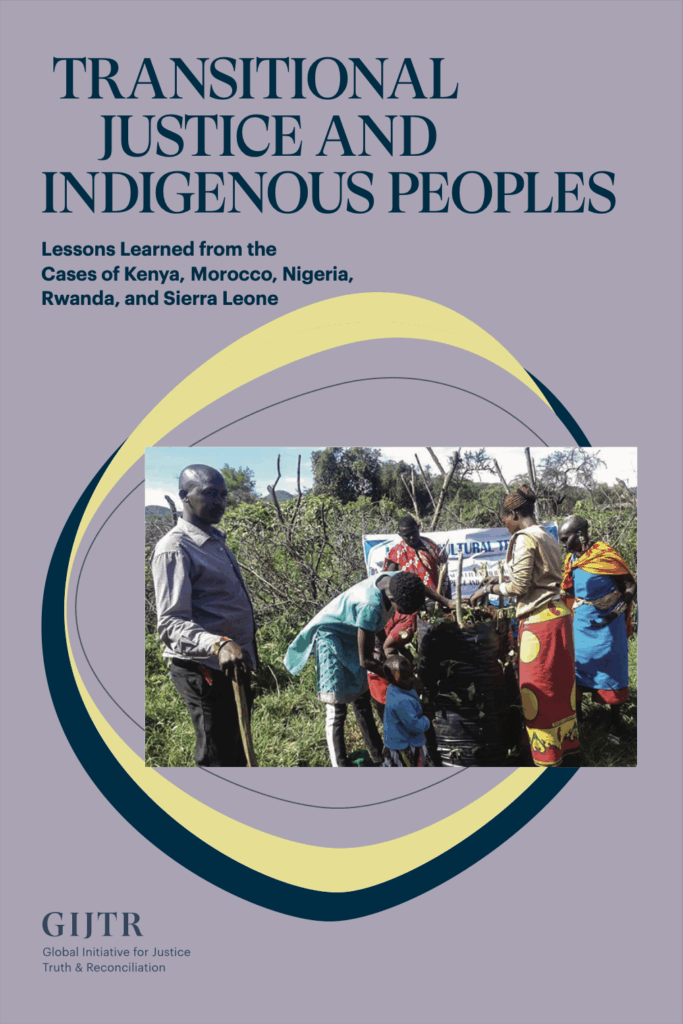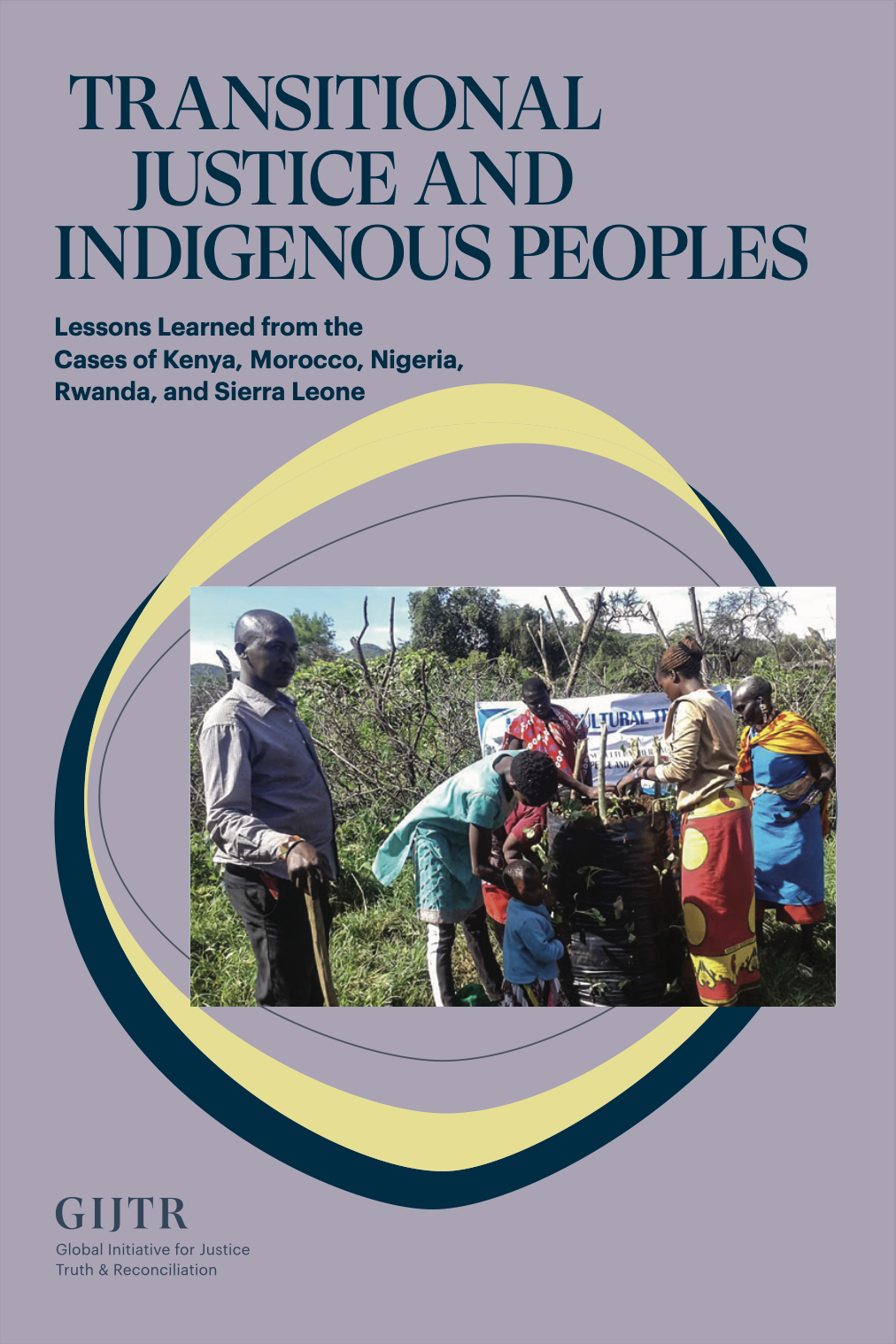
The report Transitional Justice and Indigenous Peoples: Lessons learned from the cases of Morocco, Nigeria, Rwanda, Kenya, and Sierra Leone shows both the limitations and the possibilities for constructive interaction between the field of transitional justice and the normative framework of Indigenous rights. Broadening the field of transitional justice potentially includes the understanding of, and action on, the continuing territorial dispossession and harassment of Indigenous peoples. The cases examined call for a decisive integration of the framework of Indigenous peoples’ rights and Indigenous leadership within transitional justice, decolonizing its approaches, broadening its historical perspective, and enhancing its capacity to shape profound political transformations in modern states.
This report was prepared as part of a project undertaken in the first half of 2021 by three GITJR member organizations: the Due Process of Law Foundation (DPLF) the Centre for the Study of Violence and Reconciliation (CSVR), and the International Coalition of Sites of Conscience (ICSC). The section on Latin America was coordinated by DPLF, and summarizes some of the case studies of Guatemala, Peru and Colombia, while the section on Africa was coordinated by CSVR, summarizing the main cases of Morocco, Nigeria, Rwanda, Kenya, and Sierra Leone.

